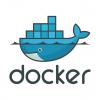 |
Lessons as a Proxy PO Sometimes a challenge can be turned into an opportunity. When our team learned that the business needed to pull their popular Product Owner to focus on another team, a sense of panic set in. There would be a job search that could and did take months. Who would help the team on their path to creating value in the interim? How would we operate? Over time, what seems to be a negative turn of events was turned upside down. |
|
 |
Text Blocks Make Java More Agile A Java architect has often posed the dilemma of whether to revise existing code around a new feature. Revising code involves a lot of code review and code rewriting. Revising existing Java code is justified only if the benefits of a new feature outweigh the effort needed to revise the code. |
|
 |
5 Tips to Take Your DevOps Pipeline Beyond the Basics The goal of a DevOps pipeline is to create a continuous workflow that includes the entire application lifecycle. But too often, people focus only on the tools and automating everything, not stopping to think whether their processes could further improve performance and efficiency. Let's look at some common challenges to continuous delivery and then learn five tips for refining your DevOps pipeline and taking it to the next level. |
|
 |
Using OKR Dashboards to Keep Focus on the Goal Employees often lack two key pieces of information that would help keep them motivated and focused: What goal am I pursuing in my current task? And how much progress is being made? You can generate constant transparency around answers to these questions by using dashboards that outline objectives and key results, or “OKRs.” Keep everyone informed about current goals and the path to achieving them. |
|
 |
Fitting into an Agile Environment as a Business Analyst It's the perennial question: Is there a role for business analysts in an agile environment? It stems from the fact that the Scrum Guide defines only three roles on the team: the development team, the ScrumMaster, and the product owner. Business analysts often feel like they have to justify their role. But the BA provides significant value. Here are three main ways they can make a difference on an agile team. |
|
 |
Using Kubernetes for Container Orchestration in DevOps Containerization has replaced virtual machines to a great extent because containers are lightweight and make efficient use of the OS kernel. Docker’s efficient nature helps with software development, testing, delivery, and deployment in a DevOps environment, and all the benefits of Docker also apply to Kubernetes. Let’s explore some of the additional agile and DevOps benefits you can gain by using Kubernetes. |
|
 |
5 Reasons Enterprise Test Automation Is So Challenging Most organizations understand that test automation is essential for modern application delivery processes. They’re just not sure how to make it a reality in an enterprise environment without exorbitant overhead and massive disruption. Enterprise organizations typically achieve small victories, but the process ultimately decays due to challenges in five main areas. Understanding these challenges will help us overcome them. |
|
 |
Strengthening System Resilience with Chaos Engineering Testing continuous technological change can seem like chaos. There are many challenges that need to be managed, such as unavailability of power, excessive temperature, incorrect configuration, unexpected behavior of services, network downtime, and processing slowdown in production. By deliberately engineering chaos, we’ll be able to discover many of our systems’ weaknesses before our users do. |
|
 |
Why You Should Be Talking Less Agile and More Flow “Flow,” defined as the movement of business value from customer insight to product delivery, is a fundamental prerequisite to agile success. Surfacing and visualizing the end-to-end workflow is a foundational requirement for enabling companies to master software-based solutions at scale. To take agile forward, you first need visibility into flow through these essential metrics. |
|
 |
How Docker Enables Agile Software Development Docker has revolutionized how software is packaged, distributed, and deployed, so it's easy to see why it has become the de facto containerization platform. But have you thought about how Docker actually makes software development, testing, delivery, and deployment more agile? Let's look at how Docker inherently supports several of the founding principles of agile software development. |
Pages
Upcoming Events
| Sep 22 |
STARWEST Software Testing Conference in Anaheim & Online |
| Oct 13 |
Agile + DevOps USA The Conference for Agile and DevOps Professionals |
| Apr 27 |
STAREAST Software Testing Conference in Orlando & Online |










